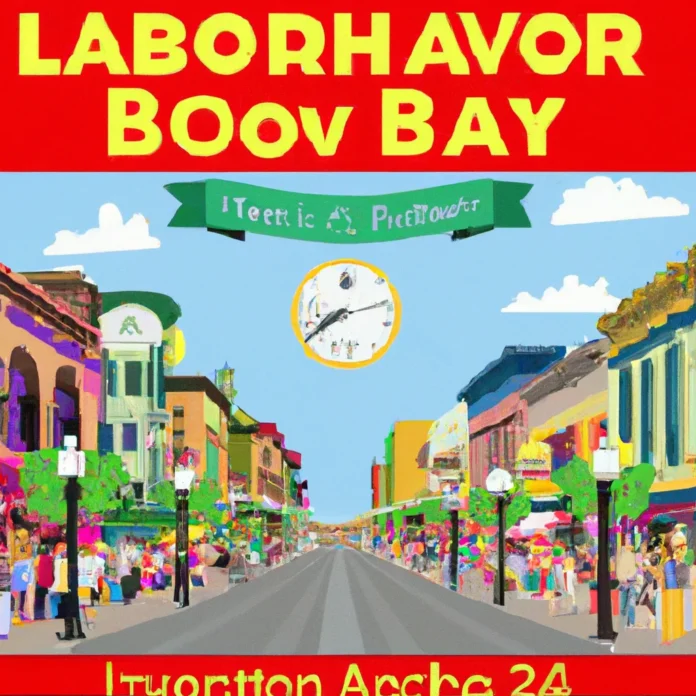Labor Day in the United States is a unique holiday with a rich history and significance that sets it apart from similar observances in other parts of the world. In this article, we will explore the origins, traditions, and cultural meanings associated with Labor Day in the U.S., highlighting how these elements differ from international practices. Our goal is to provide a comprehensive understanding of why Labor Day holds a distinctive place in American society.
The Historical Context of Labor Day in the USA
Labor Day in the United States is celebrated on the first Monday of September. Its origins can be traced back to the labor movement of the late 19th century, during a time when industrialization was rapidly changing the American economy. Workers faced long hours, unsafe conditions, and minimal pay, leading to the rise of unions and labor strikes.
The first Labor Day celebration was held on September 5, 1882, in New York City, organized by the Central Labor Union. This event was designed to honor the contributions of American workers and to promote the rights of laborers. In 1894, Labor Day became a federal holiday, partly in response to the Pullman Strike, which had drawn national attention and highlighted the struggles of workers.
Comparison to International Labor Day Celebrations
International Workers’ Day vs. Labor Day
Many countries celebrate International Workers’ Day, also known as May Day, on May 1st. This day commemorates the labor movement and the fight for workers’ rights, particularly the eight-hour workday. Unlike Labor Day in the U.S., which is seen as a day of rest and celebration, May Day often involves protests and demonstrations advocating for workers’ rights.
The choice of date is significant; May Day aligns with historical events such as the Haymarket Affair in Chicago in 1886, which was pivotal in the labor rights movement. In contrast, Labor Day in the U.S. was established to provide a more unifying and celebratory atmosphere, distancing itself from the political tensions often associated with May Day.
Cultural Significance of Labor Day in the USA
A Celebration of Workers
Labor Day serves as a tribute to the American workforce, recognizing the economic and social achievements of laborers. It is a day for honoring the contributions of workers across various sectors, from manufacturing to service industries. This recognition fosters a sense of pride and unity among Americans, emphasizing the importance of labor in the country’s development.
End of Summer Traditions
In addition to its labor-related significance, Labor Day also marks the unofficial end of summer in the United States. Many families and communities celebrate with barbecues, picnics, and outdoor activities. This aspect of the holiday has contributed to its popularity, as it combines work acknowledgment with leisure and family time.
Political Implications
Labor Day has also been intertwined with political movements. While originally a celebration of labor rights, it has evolved into a platform for political expression. Various political groups and labor unions use this day to advocate for policies affecting workers, raising awareness about issues such as minimum wage, healthcare, and job security.
Labor Day Traditions Across the USA
Parades and Events
Throughout the United States, many cities host Labor Day parades featuring union members, local businesses, and community organizations. These parades serve as a visual representation of solidarity among workers and often feature speeches from labor leaders and politicians.
Barbecues and Family Gatherings
Labor Day is synonymous with social gatherings. Families often take advantage of the long weekend to host barbecues or picnics. Traditional foods served during these gatherings include hamburgers, hot dogs, and corn on the cob, reflecting the laid-back spirit of the holiday.
Sales and Shopping
Retailers capitalize on Labor Day by offering significant sales, making it one of the busiest shopping weekends of the year. Many Americans take this opportunity to purchase items for the upcoming school year or to take advantage of end-of-summer sales.
Labor Day and Its Economic Impact
Boosting Retail Sales
Labor Day has a notable impact on the economy, particularly in the retail sector. Many consumers participate in shopping sprees during this holiday, significantly boosting sales figures for businesses. This trend underscores the holiday’s dual role as both a celebration of labor and a catalyst for economic activity.
Travel and Tourism
Labor Day weekend also serves as a peak time for travel, with many Americans taking short trips or vacations. This influx of travelers benefits the hospitality and tourism industries, demonstrating how Labor Day contributes to economic growth beyond its original labor-focused intent.
Conclusion
Labor Day in the United States stands out as a unique celebration of workers and their contributions to society. While it shares similarities with international observances, its emphasis on leisure, family, and community distinguishes it from other labor-related holidays. As we reflect on the significance of Labor Day, we acknowledge not only the achievements of workers past and present but also the ongoing challenges they face in the modern workforce.
For further insights and resources related to Labor Day and its implications in today’s economy, consider visiting Autoxite.


